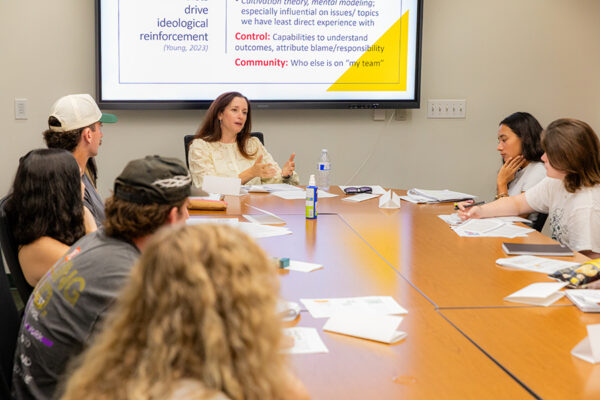Chapman University’s Rinker Health Science Campus recently hosted its largest active shooter training exercise to date. This full-scale drill brought together law enforcement, fire and emergency medical agencies from across Orange County to practice a coordinated response to a simulated emergency.
The exercise was funded by the Urban Area Security Initiative (UASI) and involved Chapman’s public safety team; Chapman’s fire life and safety department; officers and firefighters from the Anaheim, Irvine, Orange and Tustin Irvine, Orange, Anaheim and Tustin police departments; the Orange County Sheriff’s Department; and Orange County Fire Authority. Volunteers acted as injured victims, while simulated gunfire, smoke effects and emergency vehicle activity added realism to the scenario.
“The primary goal is to try to have our public safety officers who are unarmed develop a response plan along with all the local police departments, the Sheriff’s Department and Orange County Fire Authority,” said Al Vasquez, vice president of enterprise risk and safety. “Everybody needs to know what folks are going to be doing. The time to plan is not when it’s happening.”
Rick Gonzalez, associate vice president for enterprise risk and safety and chief of public safety, described how this exercise fits into Chapman’s broader safety strategy.
“We’ve been holding active shooter drills for almost eight years,” Gonzalez said. “Our goal is to have one every other year, alternating with tabletop exercises.”
Gonzalez noted the significance of this being the first multi-agency active shooter exercise held at the Rinker Campus.
“We wanted the agencies that would respond in an actual active shooter incident to come to us and be familiar with the campus,” Gonzalez added. “We don’t want them to wait until there is an incident to learn the layout.”

Campus Fire Marshal Victor Arteaga detailed the importance of multi-agency coordination.
“This kind of training ensures everyone is on the same page,” said Arteaga. “Police use a lot of 10 codes; fire does not. We must use plain English. Without this coordination, communication can break down.”

Lt. Bill McMullen of the Orange Police Department reflected on the ongoing need for training and public awareness.
“We want our community to know that we’re training for these incidents before they happen,” said McMullen. “We want them to know we have partnerships with other agencies and are prepared to save lives.”
Interim Executive Vice President and Chief Operating Officer Brian Thomason expressed appreciation for the training and its serious importance.
“It’s a valuable experience for our officers and community safety personnel,” Thomason said. “In today’s environment, it’s crucial that as many of us as possible are prepared. I’m grateful for the cooperation of the agencies who came to train with us, and we’re happy to support them in any way we can.”
Chapman University’s commitment to proactive emergency training ensures that both university personnel and local first responders are better prepared to respond swiftly and effectively to any campus emergency.




